
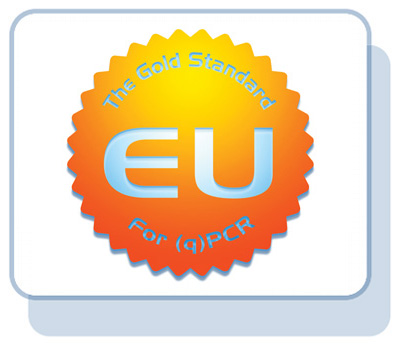
Extreme Uniform (EU) plastics are manufactured in our plant in Landgraaf, The Netherlands. Their design and production leads to the highest performance reproducibility of (q)PCR results for the end-user.
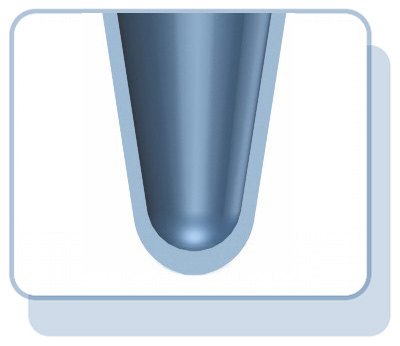
BIOplastics’ design and development strategy provides maximum mould and manufacturing accuracy. We outline precise product specifications and tolerances, and minimize mould cavities while using CYCLERtest’s temperature control competence in our manufacturing process. Result: superior and reproducible products with, in case of (q)PCR vessels, an average wall thickness of 0.30 mm for tubes and strips and 0.35 mm for plates, both with a maximum tolerance of 0.05 mm. Combined with the identical design of (q)PCR product closure one ends up in fully interchangeable and freely selectable (q)PCR cap and vessel combinations.
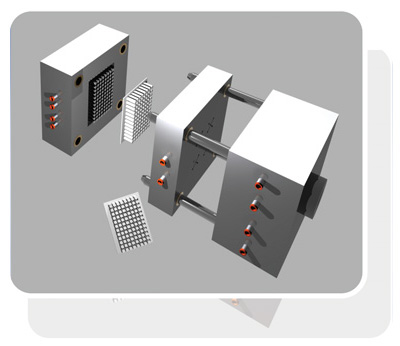
To manufacture (q)PCR products, tips and tubes with the highest uniformity possible, a low-cavity mould should be used. This means that only a few products are produced during one moulding cycle, after which the next few are moulded. Obviously, manufacturing from low-cavity moulds is more time consuming, and thus more costly, but more precise than using high multi-cavity moulds from which sometimes even 128 products are released in one cycle. Competitor’s products are often manufactured using these high-multi-cavity moulds and therefore differ severely in tolerances and quality. Manufacturing parameters of low cavity moulds are better controllable in comparison with high-cavity moulds. Injecting the polymer into a high multi-cavity mould increases mould temperature and material imbalance thus leading to product inconsistencies. This results in products with differences in wall-thickness, closure, orifice and fit, which will influence the reproducibility of your results. BIOplastics’ products are manufactured using single, low- and semi-low cavity moulds only.
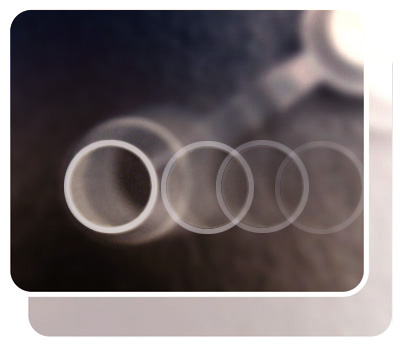
Extreme uniform wall thickness leads to a very even heating of the sample and more homogeneous reaction conditions, leading to more reproducible results. Extreme uniform wall thickness also leads to lower evaporation rates and therefore more consistent (q)PCR results. Evaporation rates of >10% up to 30% significantly influence the ratio of your (q)PCR components in the vessel, and thus the resulting reaction and its result. In case of optical detection via optical reading through the side of the qPCR tubes, better wall uniformity increases the signal consistency.
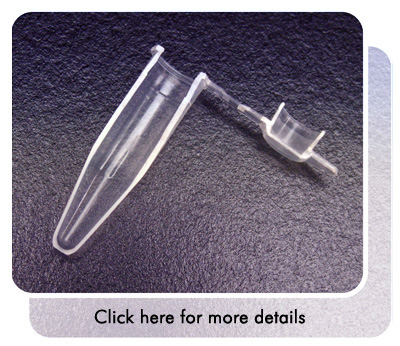 Polypropylene (PP) is never completely gas tight, so evaporation through the walls is inevitable. Sample loss through the wall is proportional to the wall thickness and is also related to the type of PP. BIOplastics designs its (q)PCR vessels with thin walls at the bottom, to allow optimal maximum heat transfer, and thicker walls at the top to minimize evaporation through the PP which consequently leads to more reproducible results.
Polypropylene (PP) is never completely gas tight, so evaporation through the walls is inevitable. Sample loss through the wall is proportional to the wall thickness and is also related to the type of PP. BIOplastics designs its (q)PCR vessels with thin walls at the bottom, to allow optimal maximum heat transfer, and thicker walls at the top to minimize evaporation through the PP which consequently leads to more reproducible results.
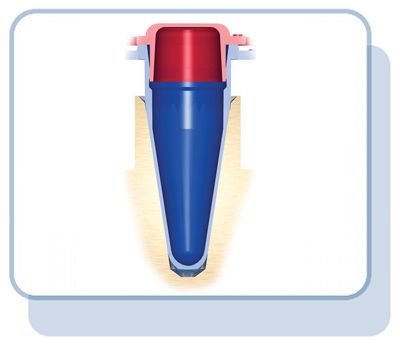
Different thermocycler brands and models have slightly different block well angles. BIOplastics uses its sister company’s (CYCLERtest) competence and knowledge of (q)PCR cyclers during the (q)PCR vessel design. BIOplastics (q)PCR vessels features a tube angle optimized to fit all main brands and models of (q)PCR thermocyclers, thus allowing maximum heat transfer for superior optimal and reproducible results.
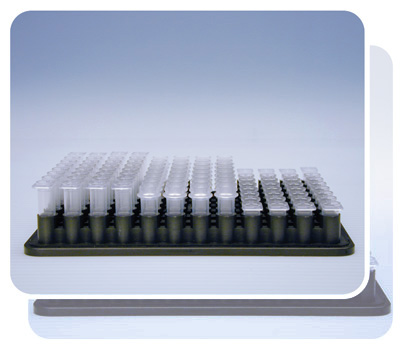
Low profile tubes have a smaller “air” volume above the reaction mix than regular and high profile tubes. This allows less reaction mix to go into gas phase, leading to less concentration of the samples, thus less change in reaction conditions and therefore more reproducible results. Fast (q)PCR cyclers accept low profile (also called 0.1 ml) tubes, strips and plates. Regular (q)PCR cyclers accept regular profile products whereas (q)PCR cyclers with height adjustable lids accept low, regular and high profile products (tubes, strip-tubes and plates).
The heated lid temperature and its control can also play an important role in the level of evaporation. Too high (fixed) lid temperatures can lead to an increased evaporation of sample in the upper area of the vessel, and/or to spontaneous post-PCR opening of tubes, caused by softening of the polypropylene. Thermal cyclers that have so-called heated-lid temperature tracking mode perform better in that they exhibit less evaporation of the sample.
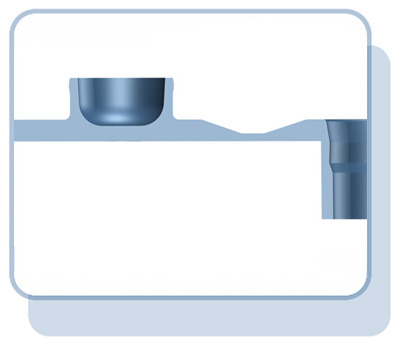
Clever design and sealing bands around the tube closure points provide a leak-free seal, reducing evaporation and leading to more reproducible results. These superior sealing properties allow for running (q)PCR reactions with volumes as low as 5 µl. The cap design allows minimum pressure for closure and opening which is highly appreciated by users and minimizes RSI risks.
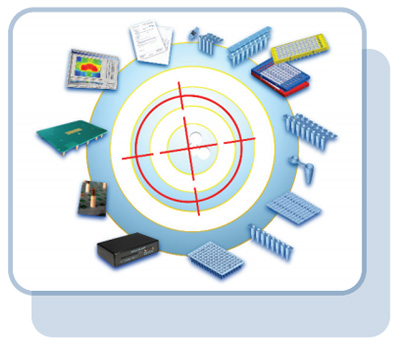
BIOplastics has assembled a range of (q)PCR products which are fully interchangeable with each other. A (q)PCR process optimized in one BIOplastics strip, tube or plate, can be simply transferred to any other. Once the process is optimized you can easily swap to a different BIOplastics format, without the need of re-optimizing or re-validating the process.
Using the same protocol on a different thermal cycler is easily done by selecting the
designated BIOplastics product for that model of cycler. There is no need for re-optimizing the whole process since BIOplastics’ product characteristics are exactly the same for our whole (q)PCR product line.
The fact that BIOplastics offers products for all brands and models of (q)PCR cyclers enables end-users to optimize the (q)PCR process in its, at that moment in time, preferred BIOplastics model.
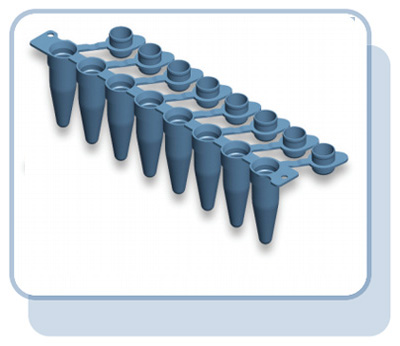 In case you do not exactly know which BIOplastics product to apply in your thermal cycler, simply consult our Cycler To Product Fit Converter, a dynamic and interactive search engine on the BIOplastics.
When switching from another plastics brand to a superior BIOplastics product, we have made things too easy for you with our Competitor To Superior Product Convertor search tool.
Thermal performance differences between thermal cycler models and brands can be accurately determined using the CYCLERtest calibration service or temperature calibration tools. To read more on this topic, see also “Normalizing Standard Operation Procedures (SOP) for (q)PCR applications”.
In case you do not exactly know which BIOplastics product to apply in your thermal cycler, simply consult our Cycler To Product Fit Converter, a dynamic and interactive search engine on the BIOplastics.
When switching from another plastics brand to a superior BIOplastics product, we have made things too easy for you with our Competitor To Superior Product Convertor search tool.
Thermal performance differences between thermal cycler models and brands can be accurately determined using the CYCLERtest calibration service or temperature calibration tools. To read more on this topic, see also “Normalizing Standard Operation Procedures (SOP) for (q)PCR applications”.
A complete BIOplastics catalog can be downloaded in PDF from our website. If you prefer a printed hard copy just request your personal copy here. Please contact us directly with any questions you might have in mind.
Samples of BIOplastics products are provided on request and/or on purchase with not-good-money-back guarantee*.
* if proven not to be working